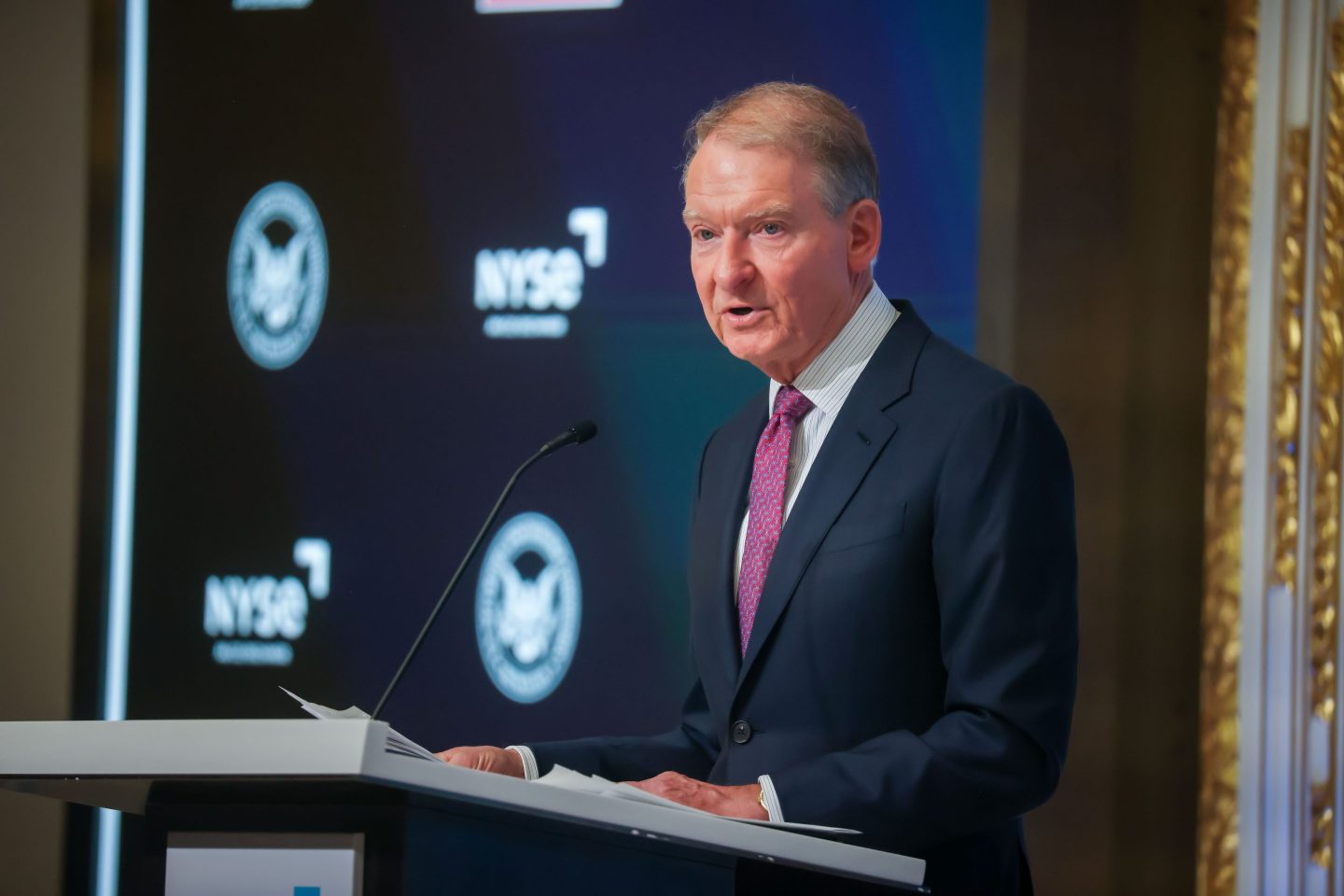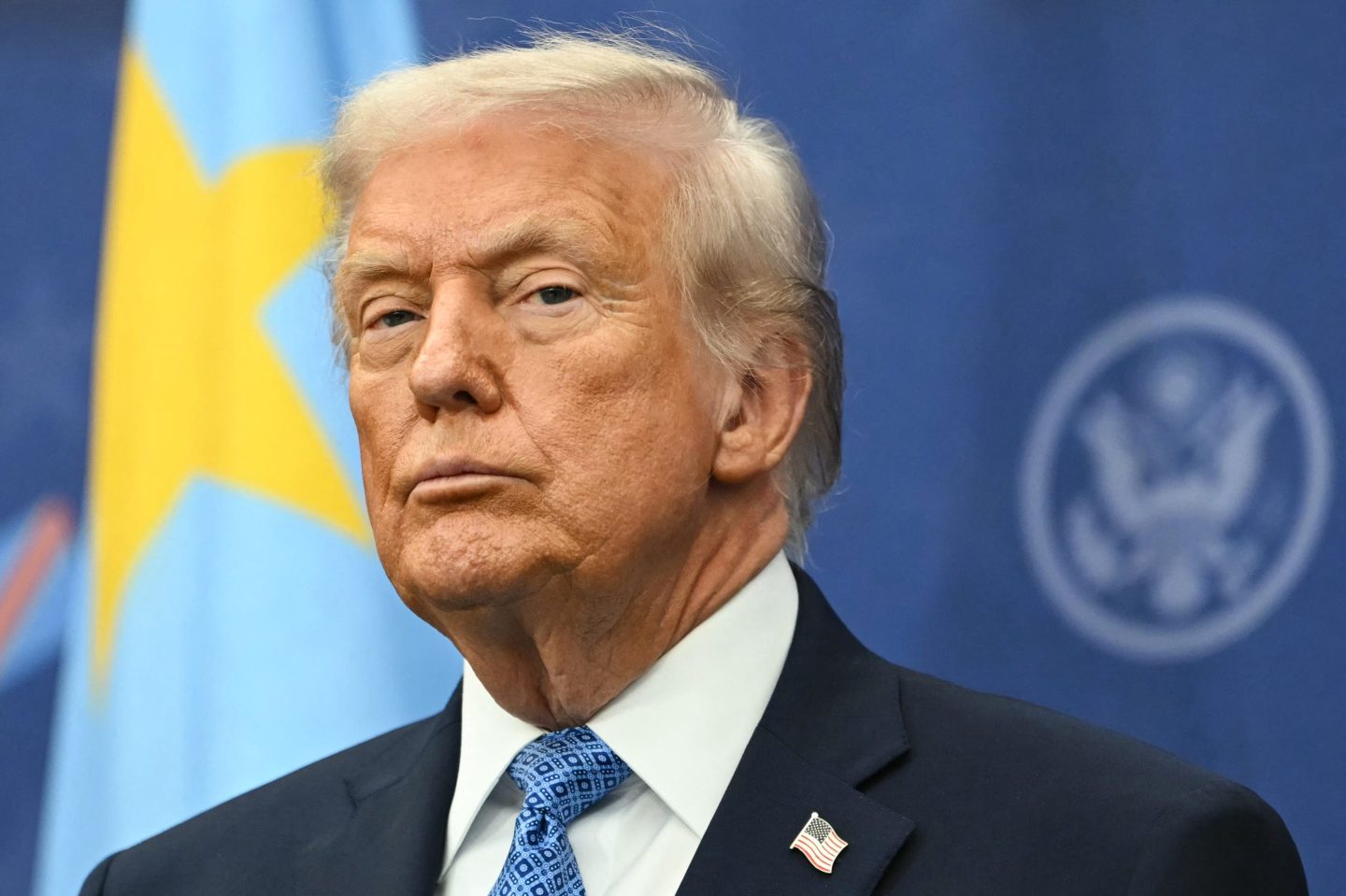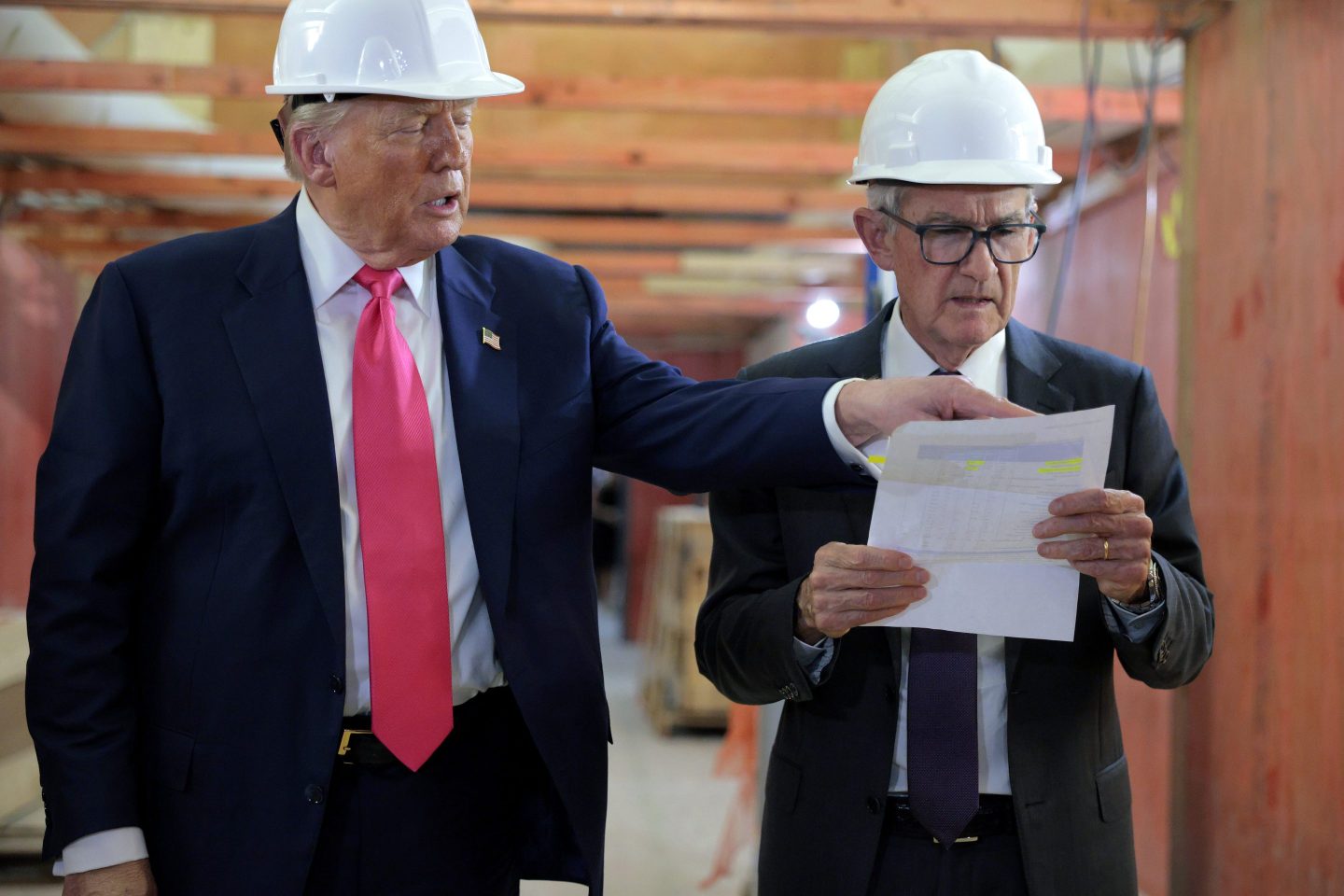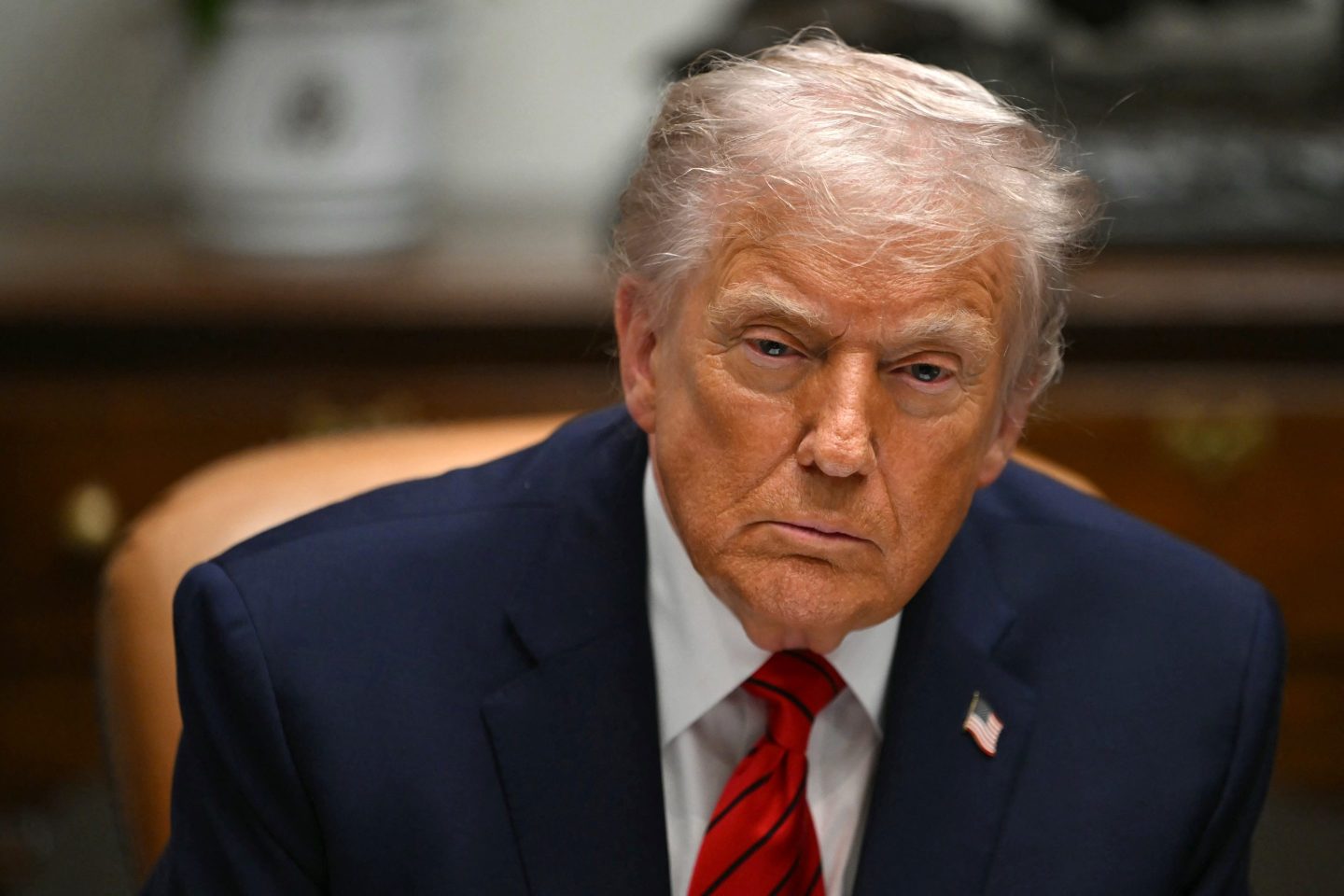This is the web version of CEO Daily. To get it delivered to your inbox, sign up here.
Good morning.
I’m in Florida, at the Lake Nona Impact Forum, where I had the opportunity to interview a man who is trying to cure Covid-19. Given his track record, he may well succeed. He is George Yancopoulos, chief science officer and cofounder of Regeneron Pharmaceuticals. Yancopoulos developed a treatment for Ebola, using an innovative technique that involves infecting thousands of mice implanted with human genes to find protective antibodies. Now he’s doing the same for the new coronavirus. If all goes well, Regeneron could be producing a treatment within two or three months.
Yancopoulos got his start in health science as a high school student, when he won the Westinghouse Science Talent Search, which later became the Intel Science Talent Search and now, thanks to Yancopoulos, is the Regeneron Science Talent Search. When I asked his advice for government policy makers on health care, he answered:
“There is so much focus on affordability and access in health care. And price is a huge burden. But we don’t pay enough attention to the biggest problem, which is the huge burden of disease. We should be focusing our attention on innovation, to try and come up with solutions. That’s far more important than affordability and access. If we don’t come up with innovations that change the future, it’s all going to be over.”
My conversation with Yancopoulos reminded me why I’m glad to have made the transition from working in Washington, where I spent the first half of my career, to writing about business. Business, at its best, is focused on solving difficult problems; the federal government, increasingly, won’t fix even the easy ones.
Separately, I want to take a moment this morning to call attention to the extraordinary program put together by my colleagues who are organizing Fortune’s Brainstorm Finance, which is being held in Montauk, N.Y., June 17-18. The event is unique in bringing legacy finance CEOs into the same room with technology disrupters, to chart the rapidly evolving future of finance. Attendees this year include the heads of Fannie Mae, US Bancorp, and the CFTC, as well as digital finance players like Zelle, Honey, Betterment and Brazil’s Nubank.
Topics for discussion: big tech’s forays into banking and cryptocurrency, the implications of China’s “digital yuan,” the multi-billion dollar M&A that’s recently been remaking the brokerage industry and more. Financial dealmakers with us in the Hamptons include Jeffrey Sprecher, the Intercontinental Exchange CEO who, after backing away from a bid for eBay this month, may still be shopping. More details here.
It’s invitation-only, but there are a few spots left for CEO Daily readers. If you’re interested in attending, shoot me an email today.
More news below.
Alan Murray
@alansmurray
alan.murray@fortune.com
TOP NEWS
Slump continues
President Trump sought to reassure the American public that the threat posed to them by the novel coronavirus "remains low". In a rather jokey press conference, Trump said Vice President Mike Pence was in charge of the administration's response to the threat. But with the first case of unknown origin appearing in the U.S., the markets were not reassured. Chinese exchanges did alright today, but the Nikkei 225 plunged more than 2% and Europe's markets have followed suit—they are now on course for their worst week in nine years. U.S. futures suggest another fall at opening. Wall Street Journal
No pilgrims
In a sign of how serious the global crisis is becoming—new infections outside China now outnumber those within—Saudi authorities are blocking foreigners from coming into the country for pilgrimage or tourism purposes. That means Muslims from outside Saudi Arabia are unable to visit the Prophet's Mosque in Medina or perform the 'Umrah pilgrimage to Mecca. In Japan, Prime Minister Shinzo Abe has told all schools to close for a month, from Monday. And Israel is taking the extraordinary step of banning all foreign travelers entering the country from Italy. CNBC
Apple activism
Apple's management again beat a shareholder proposal for the company to uphold freedom of expression globally and open up about how it handles Chinese requests for app restrictions. But while similar proposals previously garnered less than 10% shareholder approval, this time two-fifths of shareholders backed the ballot. Financial Times
Heathrow expansion
The U.K.'s Court of Appeal has blocked the expansion of London's Heathrow airport on environmental grounds. As the government won't appeal further—Prime Minister Boris Johnson has always opposed the project—Heathrow will not be able to build a third runway, because the flights that would attract would breach the U.K.'s emissions-reduction obligations. Sky News
AROUND THE WATER COOLER
Near-perfect Iger
Fortune's Michal Lev-Ram has written a great piece on Bob Iger, who abruptly stood down as Disney CEO this week. She writes: "He is leaving Disney at a near-perfect time—much like the popular '90s Seinfeld series, he is exiting on a high note. Whether he fails or succeeds at whatever he does next, his legacy at Disney is pretty much sealed, and it’s a legacy that should allow him to keep sleeping well at night." Fortune
SoftBank intrigue
The Journal has one heck of a piece alleging that SoftBank Vision Fund chief Rajeev Misra got that position via a series of dirty tricks against his rivals. According to the piece: "The tactics included planting negative news stories about them, concocting a shareholder campaign to pressure SoftBank to fire them and even attempting to lure one of them into a 'honey trap' of sexual blackmail." WSJ
AB InBev
Brewing behemoth AB InBev has warned of a 10% decline in Q1 profits, thanks to the coronavirus outbreak—in particular its effect on beer sales during Chinese New Year. The company's share price dove by 8.4% as a result. Reuters
South Africa
Desperate to avoid junk status, South African Finance Minister Tito Mboweni yesterday unveiled a budget that includes massive cuts to public workers' pay. It remains to be seen whether the move will tempt Moody's away from becoming the last ratings agency to tell investors to avoid the country, but it does set the government on a collision course with South Africa's extremely powerful unions—and the government's handling of that clash will be key. Bloomberg
This edition of CEO Daily was edited by David Meyer.












